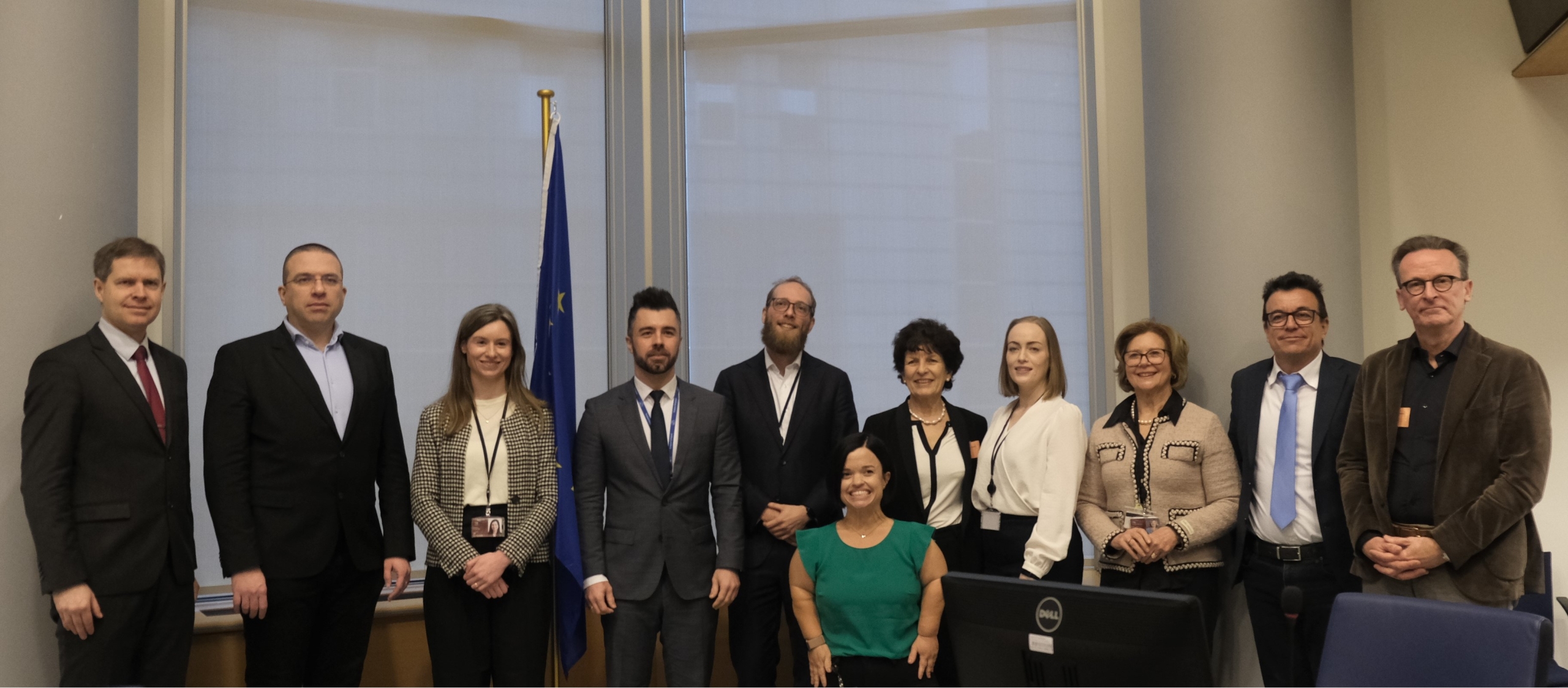Briefing Session: “Championing Rare Diseases in the European Parliament
Co-hosted by MEPs Billy Kelleher (Renew, Ireland) and András Kulja (EPP, Hungary), supported by EUCOPE and BioMarin – 5 February 2025
IPOPI was kindly invited to take part in an impactful briefing session focused on championing rare diseases, bringing together patient representatives, policymakers, healthcare professionals, and industry leaders at the European Parliament. This collaborative platform aimed to galvanise support for the rare disease community’s priorities in the upcoming parliamentary mandate — emphasising innovation, equity, and collaboration to tackle unmet medical needs and improve patient outcomes across Europe.
Advancing Newborn Screening for Rare Diseases in Europe
IPOPI President Martine Pergent, delivered a keynote address highlighting the need for implementing newborn screening (NBS) programmes across the EU for rare treatable diseases. “Newborn screening is not just a test, it’s a lifeline,” Martine stated, underscoring the vast disparities between Member States, where screening ranges from as few as 2 conditions to more than 48.
For severe combined immunodeficiencies (SCIDs), a group of paediatric emergencies where early detection means the difference between life and death, timely screening is crucial to allow an early diagnosis. Without it, SCID babies face nearly 100% mortality within their first year.
To address inequities, IPOPI co-founded Screen4Rare, a multi-stakeholder platform uniting medical experts (ESID), neonatal screening specialists (ISNS), and patient advocates to ensure equitable access to NBS for all babies, promote knowledge exchange and best practices, and support policymakers with unbiased expertise.
A Path to a more Harmonised Future
The vision for a more consistent NBS approach across Europe includes developing EU-wide support to assist Member States in expanding their programmes, to centralising knowledge sharing, data collection, and policy coordination, and strengthening cross-border cooperation through data registries and interoperable systems.
Urging the EU to support Member States in creating robust, evidence-based newborn screening programmes that give every baby the chance for a healthy future, no matter where they are born.




